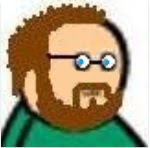From Cormac
McCarthy’s The Road. The father lies
on the ground, apparently dying:
You have to
carry the fire.
I don’t know
how to.
Yes you do.
Is it real?
The fire?
Yes it is.
Where is it?
I don’t know where it is.
Yes you do.
It's inside you. It was always there. I can see it.
I don’t
have the novel with me presently. I pulled this quote off the internet. And no
one has neglected to copy quotations or dialogue attribution because there are none.
The writing is so utterly precise that the usual aids are not required.
If I
correctly recall, this is the father’s response when the boy hints that he
wishes to go with his father into death. And perhaps that would have been a
mercy, for both of them and for the reader too, to grant that wish, but the
father is a true hero. Despite his magnificent love for his son he is
delivering him (he hopes), just like the flame from the expired Olympiad to the
new, to a new humanity; the improbable rebirth. The new garden of Eden perhaps.
The old
humanity exists in the sparsest numbers, their last puny cannibalistic soulless
inhuman hurrah in a world gray and crumbling, barren of resources. But the boy
is a rare innocent; a singular beacon of empathy; a last spark of humanity if
you will, and recently they spotted something in the water; some tiny living
thing: the only hint that the planet has not quite entirely died; that such a
garden might still be possible. If not for that sighting I think they would
have chosen to die together.
Yeah, I’ve
blogged about this book a few times already but it is so hugely important. It’s
hard to find a novel so relevant as this. On a linear level, this scene tore me
to pieces. He is sending the boy on alone, with no food, no destination and
little hope. But it moves me tremendously on another level. The book addresses
the question of species mortality linearly and also as a microcosm and then metaphorically
too!
It is
so clear to me that this scene is exactly where we are headed; that this
critical juncture is coming and relatively soon. It doesn’t matter to me what
form it takes. We are hopelessly, inexorably aiding and abetting all the forms.
It doesn’t matter because it is in our DNA: a hopeless genetic formula; a
formula with no contingency for a future.
We are,
most of us, 99.9% instinct robots. It is so magnificently easy to not see that;
to assume we are something better, and some few are better, and for some of us,
there is hope to be better as we’ve grasped the functionality if only we would
employ it. But human societies have only ever existed as slave systems and we
are no exception. The corporate-political-religious-military-greed system has
us in a stranglehold and all our innocents are delivered into that prison on the
conveyor belt that is formal education. I don’t say these words with the
carelessness or bravado that writers typically do in this society. I have
studied this intently for a long time. I could write a set of encyclopaedias
about it. Actually I have begun that very process and the project has swiftly
grown into a monster and makes a fool of me. If only I could learn how to talk
about it effectively in plain English.
For now
I am working much harder than usual to get my shit together: to save this softening
mind and softening body (last chance?) in order to join the fight more
effectively. I know a thing or two about the miracle of empathy; that DNA
antidote, which few do, and there is nothing left for me to do but join that fight. Nothing else interests me.
Perhaps we will somehow not arrive at that moment; that
last-chance last spark of humanity, with the odds stacked against us. Perhaps all our little fights in their various forms, will somehow prevail and democracies will come real and humans will
rediscover the difference between intelligence and sound-bites and choose
intelligence. Perhaps we don’t have to come to the edge of the cliff. Yes,
humanity only arrived here on planet Minerva
thanks to miracles. Perhaps we have one left, as vain as that hope looks from
here. Like Stephen Hawking said:
Where there is life there is hope.
McCarthy’s
father character seemed to think so. “We’ve
always been lucky,” he told his son, trying to convince the boy to go on
without him. “You’ll be lucky again.”





 He is driven to sample hallucinogens and will do so no matter the mentor's support or protest. What is there to do then, but support the exploration by providing safe harbour?
He is driven to sample hallucinogens and will do so no matter the mentor's support or protest. What is there to do then, but support the exploration by providing safe harbour?
